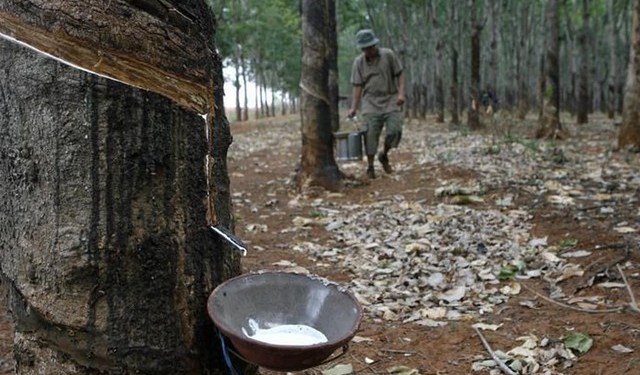Rubber climbed the most in more than a week, recovering from a five-month low, as a weakening Japanese currency boosted investor demand for the commodity used in tires.
Rubber for delivery in September gained as much as 2.4 percent to 251 yen a kilogram ($2,556 a metric ton) on the Tokyo Commodity Exchange. That was the biggest intraday gain for the most-active contract since April 9. Futures traded at 248.6 yen by 11:13 a.m. local time, after closing at 245.2 yen yesterday, the lowest since Nov. 13. Prices fell 11 percent in the past five sessions and are headed for a 10 percent drop this week.
The yen declined against most of the currencies of its 16 major trading partners before the Bank of Japan meets next week amid expectations Governor Haruhiko Kuroda will push ahead with expanding stimulus. West Texas Intermediate crude rose for a second day, after advancing the most in three weeks yesterday. Crude oil is used to make synthetic rubber.
“The weakening yen supported rubber, which also tracked gains in other commodities,” said Gu Jiong, an analyst at commodity broker Yutaka Shoji Co. Optimism that Japan’s central bank may add more stimulus also improved market sentiment, he said by phone from Tokyo.
The BOJ meets on April 26 after pledging this month to double the monetary base in two years through expanded purchases of government bonds in a bid to end 15 years of deflation.
Rubber for September delivery on the Shanghai Futures Exchange gained 1.4 percent to 18,980yuan ($3,072) a ton after falling by the bourse’s daily-price limit yesterday.
Thai rubber free-on-board lost 3 percent to 79.50 baht ($2.77) a kilogram yesterday, the lowest since October 2009, according to Rubber Research Institute of Thailand data.
Source: Bloomberg



























